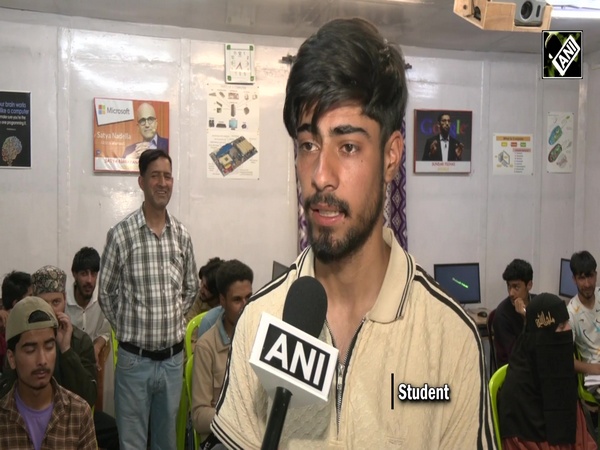Bangladesh PM's India visit to enhance bilateral cooperation
Sep 02, 2022

New Delhi [India], September 2 : Bangladesh Prime Minister Sheikh Hasina's three-day India visit next week is being seen in both countries as an opportunity to further enhance the time-tested cooperation between the two fastest growing economies of South Asia.
It is expected that the Bangladesh Prime Minister would also discuss defence cooperation and regional stability with the Indian counterpart Narendra Modi.
During the visit, the prime ministers of the two countries could jointly open a 1,320 MW power plant being set up by the Bangladesh-India Friendship Power Company Limited as a joint venture in Bangladesh.
The visit assumes importance in the backdrop of turbulent months in recent times that have disrupted the green shoots of post-Covid-19 economic recovery in the South Asian Region marked by episodes of saturating political and economic crisis, besides episodes of military adventurism and terrorism.
The bilateral ties between India and Bangladesh have grown over time as a standard model of cooperation wherein amicable solutions of impending problems are found through negotiations and constructive dialogues. Since the two countries have originated from an uninterrupted geographical, historical and cultural continuum, they have many shared resources and concerns.
Rivers are one of the most notable shared resources between the two countries. The issue of water management and water sharing is very important in the bilateral cooperation agenda of Delhi and Dhaka as India and Bangladesh share 54 rivers. The two countries have identified seven of these rivers for developing the framework of water-sharing agreements on priority.
The common major rivers between the two countries include the Ganges, Teesta, Manu, Muhuri, Khowai, Gumti, Dharla, Dudhkumar and Kushiyara. In the recent Joint River Commission (JRC), both countries finalised the text of the Memorandum of Understanding (MoU) on interim water sharing of the Kushiyara river.
The 38th JRC was held on 26th August and led by India's Minister of Jal Shakti, Gajendra Singh Shekhawat and his Bangladesh counterpart, Zaheed Farooque. The Kushiyara river is a distributary of Barak river which branches out as Kushiyara and Surma near the India-Bangladesh border.
Although JRC met after the long gap of 12 years, it dwelt upon several important bilateral issues of mutual interest including water sharing of common rivers, sharing of flood data, addressing river pollution, conducting joint studies on sedimentation management, river bank protection works etc. The two sides also discussed common basin management and Indian river linking projects.
Although India helped Bangladesh in Covid-19 management, the economy of the country suffered a great jolt because of lockdowns and disruptions in movement, logistics and supply chains. The forex reserves of the country were depleted as its exports were adversely affected. Dhaka was compelled to negotiate an assistance package from the IMF. The Bangladesh PM may seek assistance from India to fight its economic crisis and accelerate economic recovery.
During the upcoming visit of the Bangladesh Prime Minister, Bangladesh is likely to initiate talks for having an India-Bangladesh Comprehensive Economic Partnership Agreement (CEPA). It is also likely that the two premiers would discuss defence cooperation.
The bilateral defence cooperation came into focus last month when the Indian Army Chief visited Bangladesh amid speculation that Indian weapons could further equip the military forces of Bangladesh. The defence cooperation between the two countries is imperative because of vulnerabilities due to geo-political instability in Myanmar and uncalled-for provocations from external forces in the northeast. This is also important to combat terrorism in the region.
As India takes connectivity as the major determinant of development in South Asian countries, it is likely to put forth a proposal to increase railway connectivity and restore three more train services between India and Bangladesh. It may also seek to revive old tracks used until the 1965 India-Pakistan war.
It would also likely bring the transit issue to reap the advantage of complementarities with the recently constructed Padma Bridge, connecting southwestern Bangladesh including the Mongla Seaport with the rest of the country as well as India.
Given the great track record of negotiation and dialogue, the leaders of the two countries might go a step forward in coming times in resolving Teesta waters issue and other transboundary streams alongside motorised vehicle movements to and from Nepal and Bhutan through the Indian territory and BBIN initiatives.
The two countries have been cooperating since the independence of Bangladesh with an impeccable record of friendship and trust. They have a strong resolve to further the overall ties and take it to a new height. The visit of Bangladesh PM to India is likely to be a step forward.


















